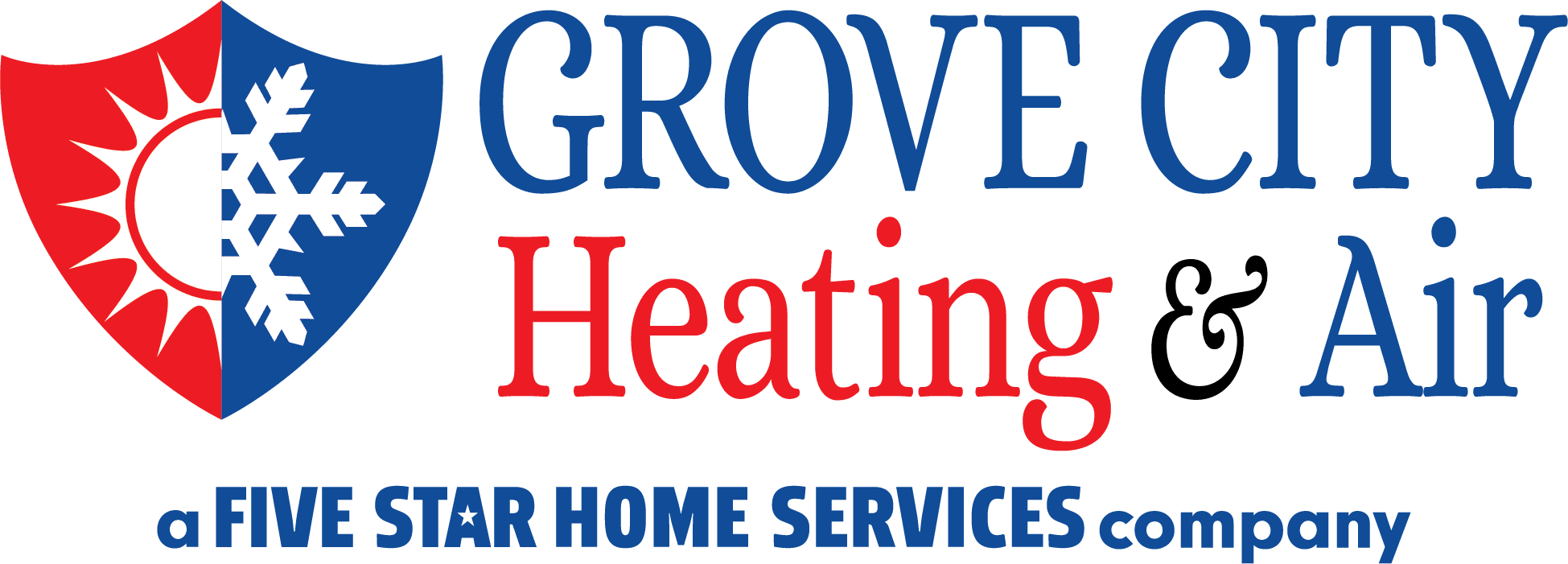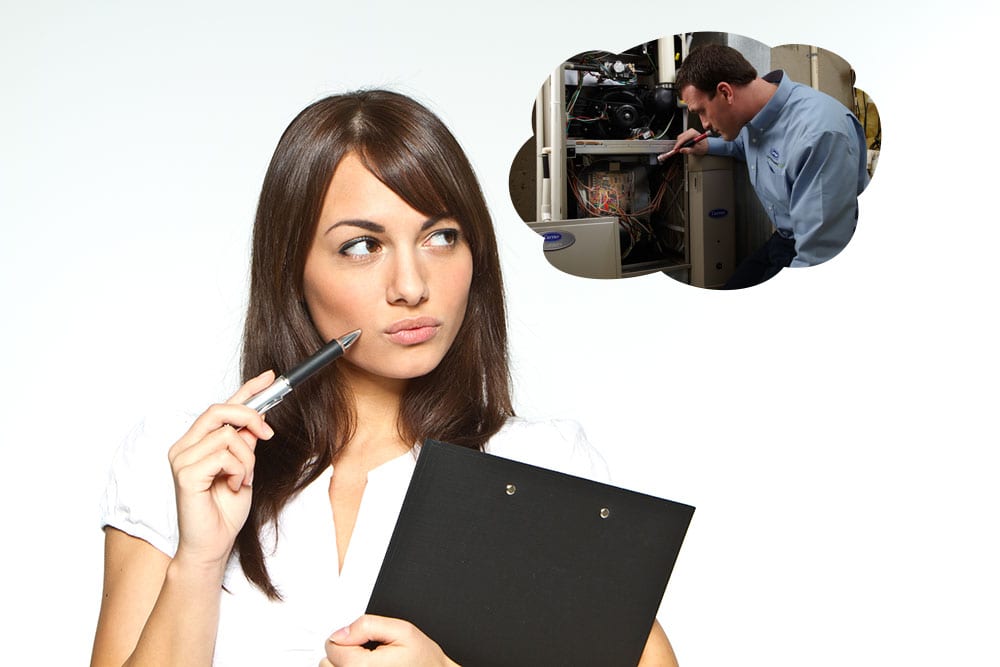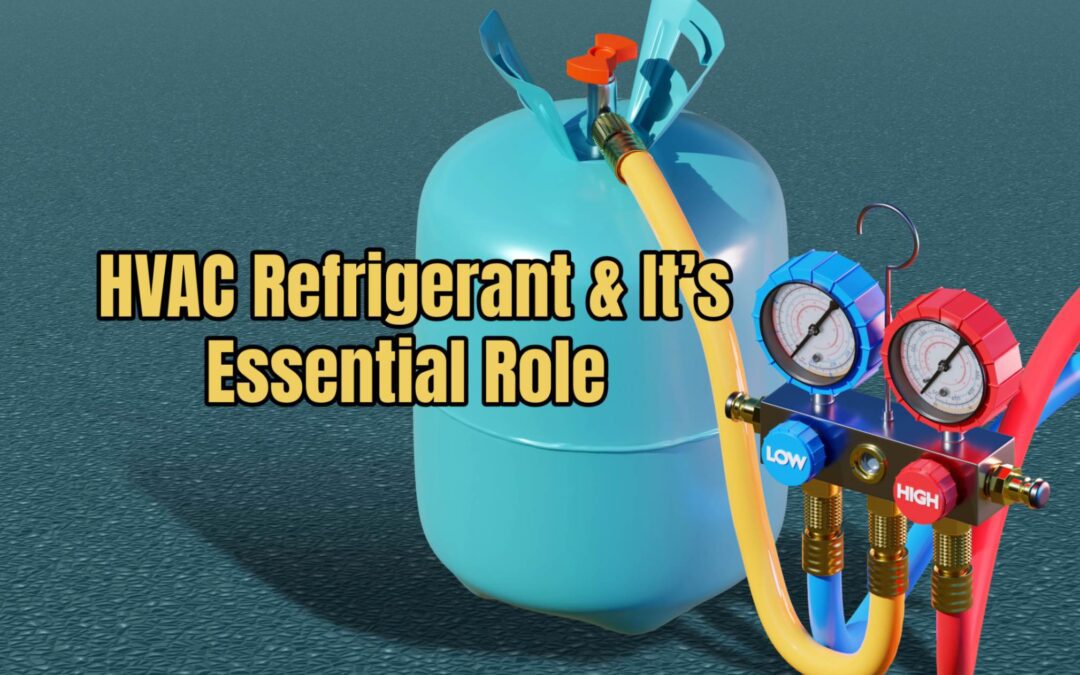Maintain your home’s HVAC equipment to prevent future problems and unwanted costs!
Keep your cooling and heating system at peak performance by having a contractor do semi-annual pre-season check-ups. Contractors get busy once summer and winter come, so it’s best to check the cooling system in the spring and the heating system in the fall.
To remember, you suggest you plan the check-ups around the time changes in the spring and fall (when most HVAC contractors are the slowest.
A typical maintenance check-up should include the following.
- Check thermostat settings to ensure the cooling and heating system keeps you comfortable when you are home and saves energy while you are away.
- Tighten all electrical connections and measure voltage and current on motors. Faulty electrical connections can cause unsafe operation of your system and reduce the life of major components. Motors often give us a clue on their health before they fail, so checking this allows us to pinpoint future issues.
- Lubricate all moving parts. Parts that lack lubrication cause friction in motors and increases the amount of electricity you use. Friction causes parts to wear out or fail prematurely.
- Check and inspect the condensate drain in your central air conditioner, furnace and/or heat pump (when in cooling mode). A plugged drain can cause water damage in the house and affect indoor humidity levels.
- Check controls of the system to ensure proper and safe operation. Check the starting cycle of the equipment to assure the system starts, operates, and shuts off properly.
Cooling Specific
- Clean evaporator and condenser air conditioning coils. Dirty coils reduce the AC system’s ability to cool your home and cause the system to run longer, increasing energy costs and reducing the life of the equipment.
- Check your central air conditioner’s refrigerant level and adjust if necessary. Too much or too little refrigerant will make your system less efficient, increasing energy costs and reducing the life of the equipment. Refrigerant is tightly regulated by the EPA and requires a qualified, licensed HVAC contractor to perform this task.
- Clean and adjust blower components to provide proper system airflow for greater comfort levels. Airflow problems can reduce your system’s efficiency by up to 15 percent.
Heating Specific
- Check all gas (or oil) connections, gas pressure, burner combustion and heat exchanger. Improperly operating gas (or oil) connections are a fire hazard and can contribute to health problems. A dirty burner or cracked heat exchanger causes improper burner operation. Either can cause the equipment to operate less safely and efficiently, including the release or deadly carbon monoxide into your home.
Actions To Do Yourself
- Inspect, clean, or change air filters once a month in your central air conditioner, furnace, and/or heat pump. Your contractor can show you how to do this. A dirty filter can increase energy costs and damage your equipment, leading to early failure. If you have family members with breathing issues (such as allergies or asthma) this is doubly important.
Now is the best time to get your home’s heating equipment checked out before the dreaded cold of winter arrives. Set an appointment today for a pre-season furnace tune up and safety check. Call (614)490-7540 or use our convenient appointment request form.
Don’t delay! Winter will be here before you know it.






